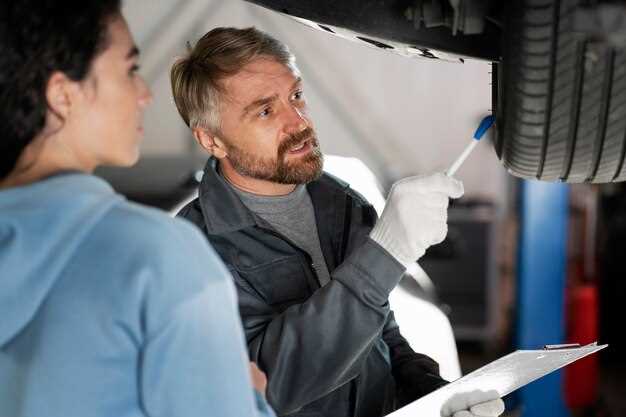Hidden costs in auto repair you should know

When it comes to maintaining your vehicle, understanding the true cost of auto repair is crucial. While most car owners are aware of basic service fees, many are unaware of the hidden costs that can significantly inflate their final bills. These hidden charges can range from unexpected diagnostic fees to labor costs that are not disclosed upfront.
It’s essential to be proactive and informed about the various fees associated with car repair services. Knowing which services might carry additional costs can save you from budget surprises and ensure that your vehicle receives the best care without emptying your wallet. This article aims to uncover these hidden costs so that you can approach auto repairs with confidence.
By familiarizing yourself with potential extra expenses, you can make better financial decisions regarding your vehicle’s maintenance. Whether it’s understanding markups on parts, administrative fees, or unnecessary add-ons, being aware of these factors will empower you as a car owner and help you stay one step ahead in managing your auto repair costs.
Understanding Service Fees That Catch You Off Guard

When it comes to auto repair, consumers often focus primarily on labor and parts costs. However, service fees can significantly impact the total bill, often catching customers by surprise. Understanding these fees is crucial for budgeting and avoiding unexpected expenses.
One of the most common hidden service fees is the diagnostic fee. Many auto repair shops charge a fee to assess the problem before any repairs are made. This fee may be applied to the final bill if you decide to proceed with the suggested repairs, but if you opt not to have the work done, you could still pay for this initial assessment.
Additionally, environmental fees may be included in your invoice. These charges cover the proper disposal of hazardous materials such as oil and batteries. While they are essential for environmental protection, they can come as a surprise to those who were not made aware of them upfront.
Some shops also impose shop supplies or service charges, which cover general overhead costs such as rags, fluids, and other materials used during the repair process. Customers may notice these fees listed separately, and they can vary significantly between different service providers.
Moreover, there are often additional fees associated with specialized services. If you require a specific type of repair or maintenance that demands specialized tools or technology, expect the service fees to be higher than standard rates. Always inquire about these potential costs before consenting to any service.
Lastly, labor fees may vary depending on the time of day or week. Some shops charge more for emergency repairs or weekend services, which can lead to inflated costs. Always clarify the labor rates beforehand to avoid any misunderstandings.
In summary, understanding service fees in auto repair requires diligence and communication. By asking about all potential fees before the work begins, you can eliminate surprises and ensure a transparent service experience.
Breaking Down Repair Costs: Parts vs. Labor

When it comes to auto repair, understanding the breakdown of repair costs is essential for every vehicle owner. Primarily, the two main components of these costs are parts and labor. Each of these elements contributes significantly to the overall service fees charged by the repair shop.
The cost of parts generally includes both the price of the components needed for the repair and any associated fees such as shipping or handling. Depending on the make and model of your vehicle, parts can vary widely in price. Original Equipment Manufacturer (OEM) parts typically cost more than aftermarket options. Vehicle owners should weigh the pros and cons of each to determine the best fit for their repair needs and budget.
Labor costs represent the fees for the time and expertise required to complete the service. Repair shops often charge an hourly rate, which can vary based on location, the complexity of the work, and the experience of the technicians. It’s important to note that labor fees can accumulate quickly, especially for extensive repairs that take several hours or require specialized skills.
In conclusion, knowing the difference between parts and labor can help you better anticipate the total cost of auto repairs. By being informed about these elements, you can make smarter decisions and potentially save money on your next service visit.
How to Identify and Negotiate Additional Charges
Identifying additional charges during an auto repair process requires vigilance and awareness. Start by reviewing the initial estimate provided by the repair shop. This document should clearly outline the expected costs, including labor and parts. If the final bill significantly deviates from this estimate, inquire about the specific reasons for the adjustments.
Next, request a detailed breakdown of all fees incurred during the repair. This should include costs for parts, labor rates, and any miscellaneous fees that may not have been previously disclosed. Be attentive to charges that seem inconsistent or excessive, and challenge them by asking the technician for clarification. Understanding the rationale behind each cost helps you assess whether they are justified.
When it comes to negotiating additional charges, approach the discussion calmly and confidently. Present your findings and express any concerns regarding unexpected fees. If certain charges seem unreasonable, cite comparable rates from other repair shops as leverage during negotiations. Be prepared to discuss specifics, demonstrating that you are informed about standard practices in the industry.
If the shop is unwilling to reduce the fees, consider looking for a compromise. Propose alternatives, such as financing options or discounts for repeat customers. Establishing a good rapport with the staff can also improve your chances of receiving a favorable outcome during negotiations.
Finally, always remember to document all interactions regarding fees and negotiations. Keeping a record can provide support should you need to escalate the issue to a higher authority or seek recourse from consumer protection organizations. By being proactive and informed, you can effectively manage additional costs associated with auto repairs.

